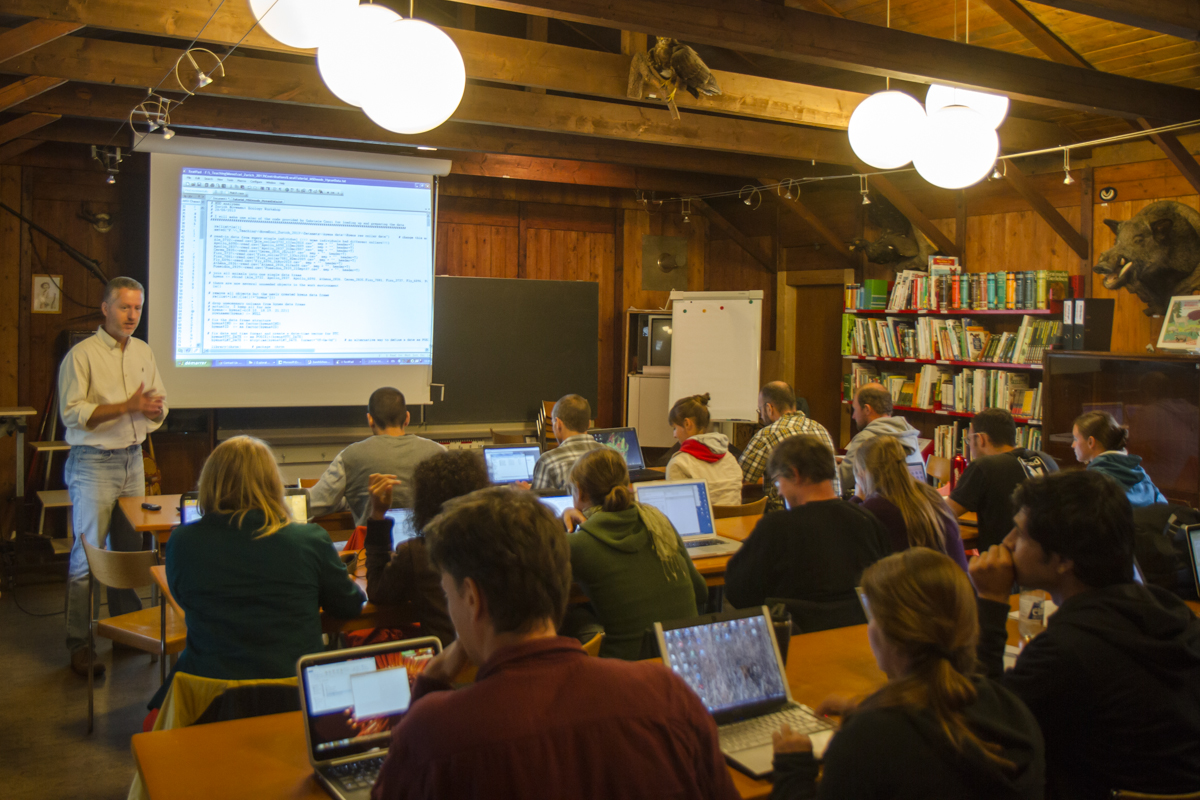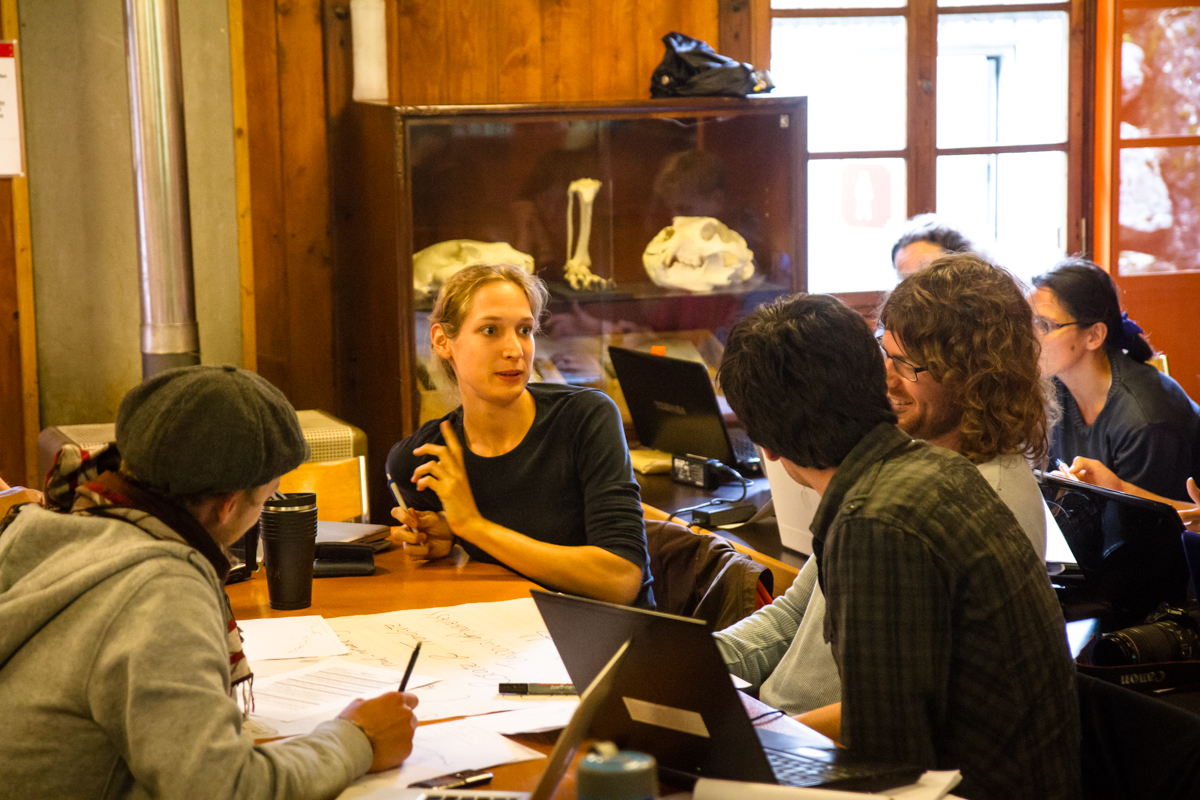Summer 2015
Animal Movement Ecology Summer School

This one-week course (August 23-28 2015) located in Faido, Switzerland covers several aspects of animal movement ecology and includs both theoretical/conceptual and practical sessions.
The course builds on analytical complexity and leads the participant through several steps. During day one, the participants will learn to source landscape information through available remote sensing imagery and to import, manipulate and represent geographical data into R. Day two will be dedicated to the decomposition of movement trajectories and characterisation of movement modes and phases. During day three the participants will be exposed to common methods used in the calculation of home ranges and discuss the pros and cons. During the next day we will use presence/absence data to analyze habitat selection and create species distribution models. Finally, during the last day, the participants will be exposed to some new tools and methodologies to include data from alternative sensors (e.g. accelerometers) in the study of animal movements. Fundamental aspects such as study design, spatial autocorrelation, sources of error and time varying covariates will be discussed.

